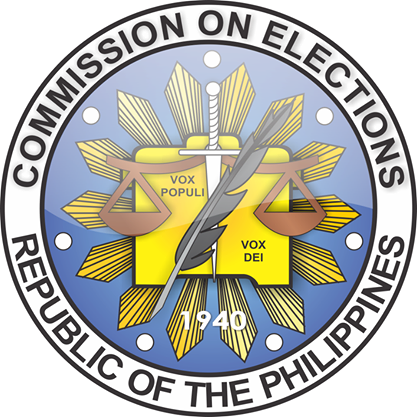MANILA—A week before the start of the campaign period for the national positions in the May 9 polls, the Commission on Elections (Comelec) urged the public to support its “shame campaign” throygh reporting the illegal campaign materials of candidates.
Comelec Chairman Juan Andres Bautista encouraged citizens to report campaign materials which are not in the common poster areas designated for this purpose by the law.
“We are embarking on a shame campaign. We want to involve the citizenry. We are challenging our countrymen to take a picture of what they believe as illegal campaign materials of candidates,” he said at the press briefing after signing a Memorandum of Agreement (MOA) with the Department of Public Works and Highways (DPWH) and the Metro Manila Development Authority (MMDA) on Tuesday.
The poll body chief noted that pictures of illegal campaign materials will be posted in their official website, hoping to get voters’ attention.
“As you know, in social media, if these photos become viral, it may have an effect on the candidate’s campaign because it will be known to everyone that they violate the laws. It is likely that they will not be voted by our voters,” Bautista explained.
He added that candidates may also be held liable for violating campaign rules.
“It can be reported to the Comelec, after which, cases can be filed against them in the courts,” Bautista said.
The public may send pictures to the Comelec’s social media accounts: Facebook; Yahoomail: chairman@Comelec.gov.ph, eid@Comelec.gov.ph; Comelec Chairman Andres Bautista’s Twitter, Comelec’s Twitter; Instagram.
It is prohibited to post, display, or exhibit any election campaign or propaganda material outside of authorised common poster areas, public places, or in private properties without the consent of the owner.
Public places include electronic announcement boards, such as LED display boards located along highways and streets, and LCD TV displays posted on walls of public buildings; motor vehicles used as patrol cars, ambulances, and for other similar purposes that are owned by local government units, government-owned and controlled corporations; waiting sheds, sidewalks, street and lamp posts, electric posts and wires, traffic signages and other signboards erected on public property, pedestrian overpasses and underpasses, flyovers, and underpasses, bridges, main thoroughfares, centre islands of roads and highways; schools, shrines, barangay halls, health centres, public structures and buildings or any edifice; public transport vehicles owned and controlled by the government, such as the Metro Rail Transit (MRT), Light Rail Transit (LRT) and Philippine National Railway (PNR) trains; and within the premises of public transport terminals, such as bus terminals, airports, seaports, docks, piers, train stations, that are owned and controlled by the government.
Posting illegal campaign materials shall constitute an election offense, which carries the penalty of one to six years imprisonment, removal of right to vote, and disqualification from holding public office.
Meanwhile, Bautista said that MOA authorizes the DPWH and MMDA to conduct “Operation Baklas” or removing illegal campaign materials in Metro Manila and all over the country.
Both agencies are allowed to seek assistance from the Philippine National Police (PNP) and the Armed Forces of the Philippines (AFP) for operations in the provinces, while in the National Capital Region, the MMDA may seek assistance from PNP.
The partnership aims to raise public awareness on eco-friendly elections – least negative impact of suffrage on people and planet, encourage the recycling and use of environment-friendly campaign materials and promote vigilance against wasteful campaigns.
He added that “mortal sins” against clean and green elections are: posting of campaign materials on trees, plants, and other places outside of the designated areas, excessive use of plastic and unrecyclable materials and irresponsible dumping on the roadside etc.
“First and foremost, they (illegal propaganda materials) should be taken down and removed. Afterwards, there will be a reporting mechanism, wherein the DPWH and the MMDA will report to the Comelec those they have removed,” Bautista said.
For his part, DPWH Secretary Rogelio Singson expressed concern over the taking down of illegal campaign materials along local roads, as they do not see problem along national roads since the department has the full control over them.
“My only concerned which I have conveyed to Chairman (Bautista), we have full control over national roads, the problem is with the local roads. So, I asked if we can ask for assistnce from the AFP or PNP for us to be able to enter local roads and remote areas. We were given the assurance by the chairman that we will get support,” Singson said.
The DPWH chief also assured that there will be proper documentation of their “Operation Baklas” against unlawful campaign materials.
On the other hand, MMDA Chairman Emerson Carlos said that the MOA has given them the authority to put down illegal campaign materials.
